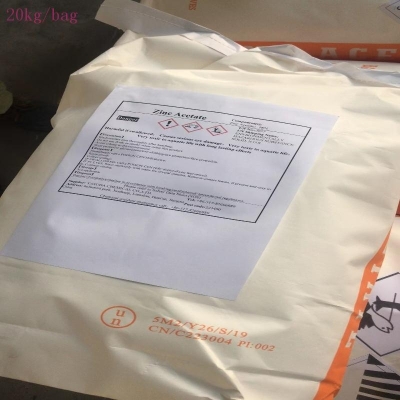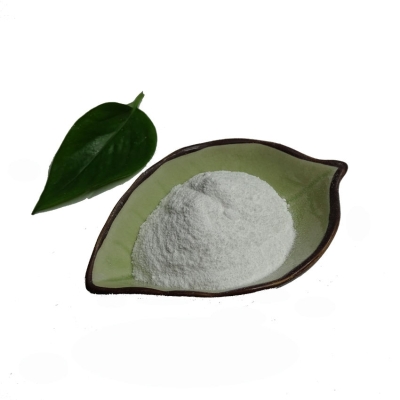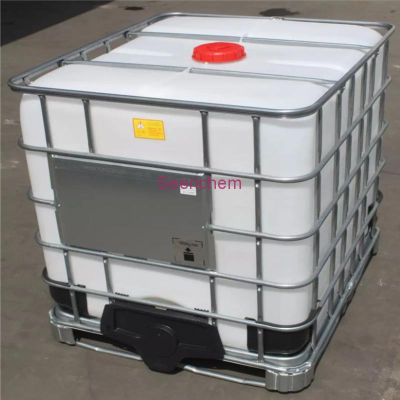-
Categories
-
Pharmaceutical Intermediates
-
Active Pharmaceutical Ingredients
-
Food Additives
- Industrial Coatings
- Agrochemicals
- Dyes and Pigments
- Surfactant
- Flavors and Fragrances
- Chemical Reagents
- Catalyst and Auxiliary
- Natural Products
- Inorganic Chemistry
-
Organic Chemistry
-
Biochemical Engineering
- Analytical Chemistry
-
Cosmetic Ingredient
- Water Treatment Chemical
-
Pharmaceutical Intermediates
Promotion
ECHEMI Mall
Wholesale
Weekly Price
Exhibition
News
-
Trade Service
On the "Ministerial Channel" opened again by the National People's Congress, Minister of Agriculture Han Changfu answered the relationship between fertilizers, pesticides, seeds and other agricultural production materials and the continuous increase in grain output in three sentences, to rectify the name of agricultural materials and decipher the increase in production.
The first sentence is that China has had a bumper harvest year after year, which has reached a very high level.
Grain output has stabilized at 1.
2 trillion catties for five consecutive years.
In this government work report, Premier Li Keqiang specifically mentioned that the grain production capacity has reached 1.
2 trillion catties, and he also proposed to continue to stabilize and optimize grain production in 2018 and the next few years.
In the second sentence, chemical fertilizers have indeed played an important role in increasing grain production, but it cannot be said that the increase in production is "fed" by chemical fertilizers.
Increasing food production depends on policy, science, and investment.
Among the scientific and technological elements for increasing production, various factors such as improved seeding, agricultural mechanization, and water conservancy have played a role, and chemical fertilizers have also played a more important role.
In the third sentence, we do use a lot of chemical fertilizers and we must reduce the amount.
Chemical fertilizer plays an important role, because chemical fertilizer is also the result of scientific and technological progress.
It provides plants with nitrogen, phosphorus and potassium.
However, the use of more chemical fertilizers and more pesticides will increase production costs on the one hand, and on the other hand, it will have a negative impact on the environment.
Therefore, it is necessary to improve its fertility and medicinal effect and reduce its use.
Since the "13th Five-Year Plan", we have vigorously carried out the reduction of fertilizers and pesticides, and the effect is obvious.
In 2015, the amount of pesticide application across our country began to grow negatively; in 2016, the amount of fertilizer application began to grow negatively.
We achieved the goal of the "13th Five-Year Plan" three years ahead of schedule.
Over the past few decades, our fertilizer and pesticide application has been increasing, and now we have achieved negative growth.
This is an important turning point, and I think it is historic.
In the next step, the agricultural sector must vigorously promote the green development of agriculture, and continue to promote the reduction and efficiency improvement of fertilizers and pesticides.
First, focus on key varieties.
In particular, we will increase our efforts in horticultural products of fruit and vegetable tea.
In horticultural products across the country, especially in the key production counties of fruit and vegetable tea, we will promote the action of replacing chemical fertilizers with organic fertilizers, and promote green prevention and control and biological control.
Second, focus on new business entities.
Guide family farms, cooperatives, and leading enterprises to take the lead in reducing fertilizers and pesticides.
Third, vigorously promote technological innovation.
Improve the scientificity and effectiveness of the use of fertilizers and pesticides; innovate management, promote the reduction of fertilizers and pesticides and promote the green development of agriculture through measures such as government purchase services, financial innovation, and subsidies for organic fertilizers.
The first sentence is that China has had a bumper harvest year after year, which has reached a very high level.
Grain output has stabilized at 1.
2 trillion catties for five consecutive years.
In this government work report, Premier Li Keqiang specifically mentioned that the grain production capacity has reached 1.
2 trillion catties, and he also proposed to continue to stabilize and optimize grain production in 2018 and the next few years.
In the second sentence, chemical fertilizers have indeed played an important role in increasing grain production, but it cannot be said that the increase in production is "fed" by chemical fertilizers.
Increasing food production depends on policy, science, and investment.
Among the scientific and technological elements for increasing production, various factors such as improved seeding, agricultural mechanization, and water conservancy have played a role, and chemical fertilizers have also played a more important role.
In the third sentence, we do use a lot of chemical fertilizers and we must reduce the amount.
Chemical fertilizer plays an important role, because chemical fertilizer is also the result of scientific and technological progress.
It provides plants with nitrogen, phosphorus and potassium.
However, the use of more chemical fertilizers and more pesticides will increase production costs on the one hand, and on the other hand, it will have a negative impact on the environment.
Therefore, it is necessary to improve its fertility and medicinal effect and reduce its use.
Since the "13th Five-Year Plan", we have vigorously carried out the reduction of fertilizers and pesticides, and the effect is obvious.
In 2015, the amount of pesticide application across our country began to grow negatively; in 2016, the amount of fertilizer application began to grow negatively.
We achieved the goal of the "13th Five-Year Plan" three years ahead of schedule.
Over the past few decades, our fertilizer and pesticide application has been increasing, and now we have achieved negative growth.
This is an important turning point, and I think it is historic.
In the next step, the agricultural sector must vigorously promote the green development of agriculture, and continue to promote the reduction and efficiency improvement of fertilizers and pesticides.
First, focus on key varieties.
In particular, we will increase our efforts in horticultural products of fruit and vegetable tea.
In horticultural products across the country, especially in the key production counties of fruit and vegetable tea, we will promote the action of replacing chemical fertilizers with organic fertilizers, and promote green prevention and control and biological control.
Second, focus on new business entities.
Guide family farms, cooperatives, and leading enterprises to take the lead in reducing fertilizers and pesticides.
Third, vigorously promote technological innovation.
Improve the scientificity and effectiveness of the use of fertilizers and pesticides; innovate management, promote the reduction of fertilizers and pesticides and promote the green development of agriculture through measures such as government purchase services, financial innovation, and subsidies for organic fertilizers.







